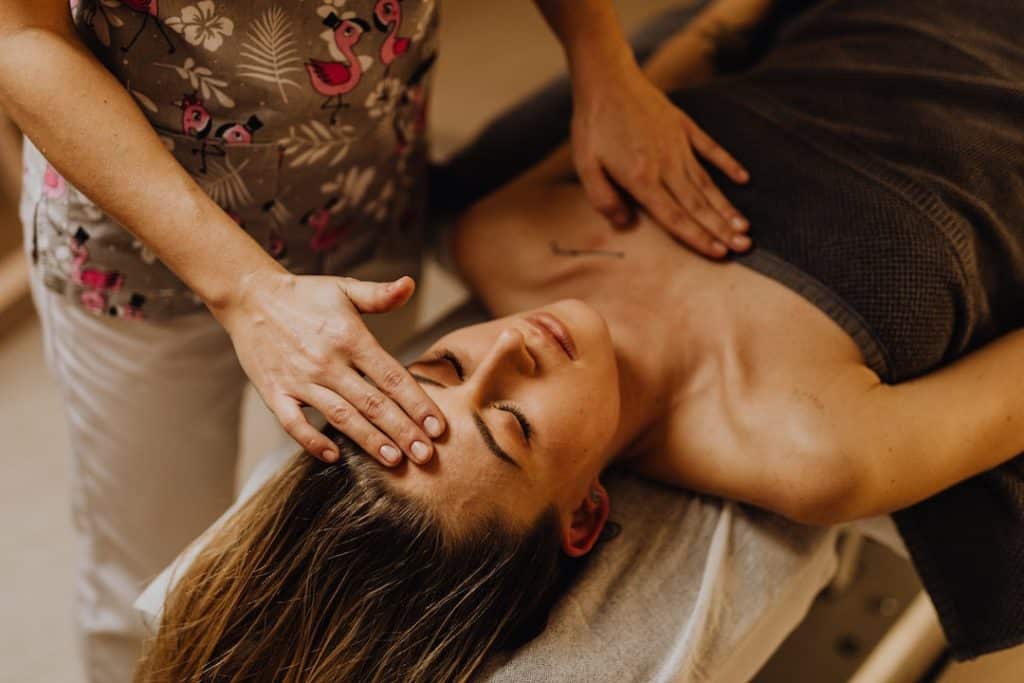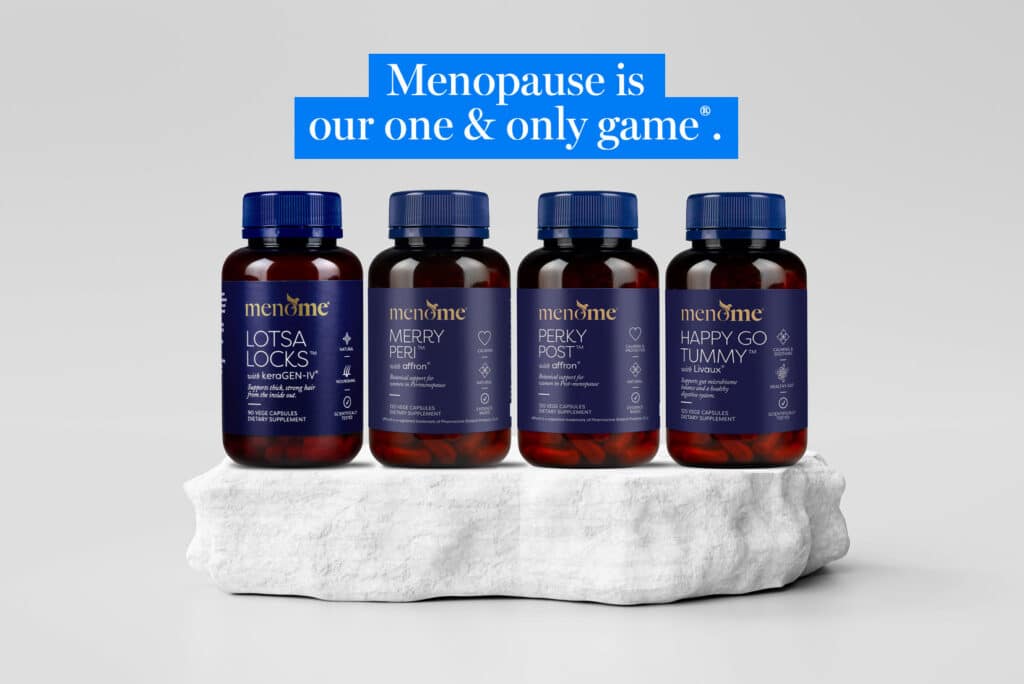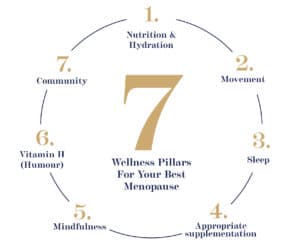If you’re looking for natural menopause relief to ease you through menopause there’s a lot on offer. From natural supplementation like Merry Peri® and Perky Post® through to the ancient wisdom of Ayurveda.
As a matter of fact, it’s a good idea to begin prepping for menopause in your 30s because your younger years influence the journey. Burning the candle at both ends, eating on the run, living on a diet of stress and takeaways put your body out of Ayurvedic alignment. And that includes your hormones. The good news is Ayurveda can help you heal through the mind and body.
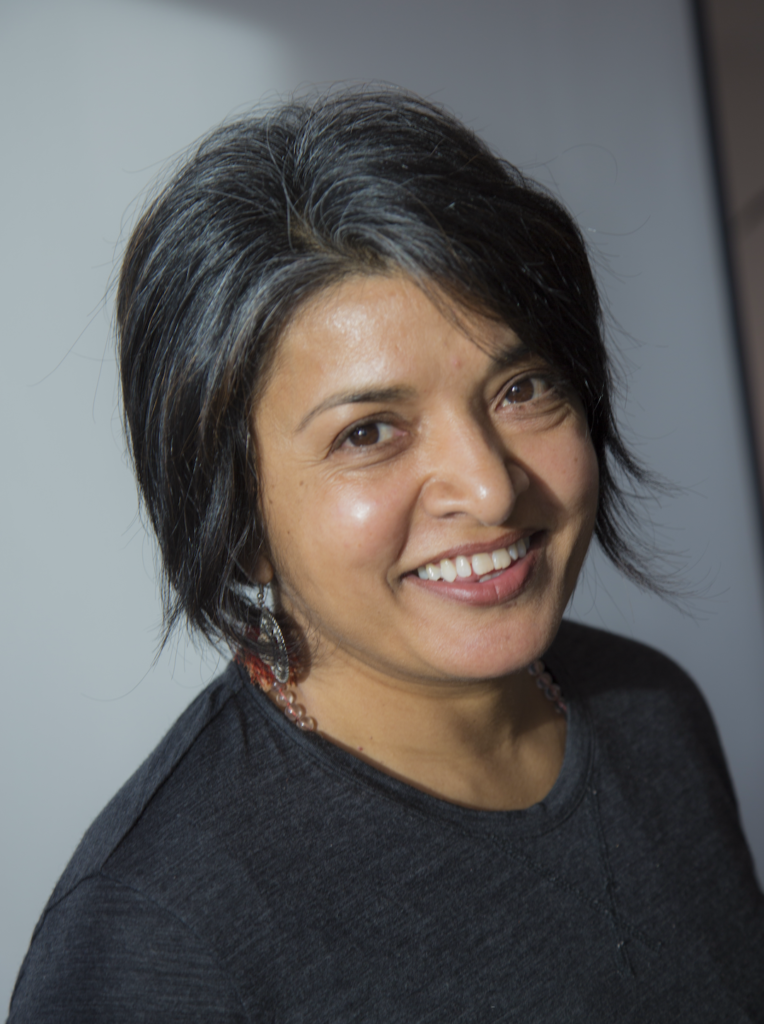
What is Ayurveda?
We asked Ayurvedic Lifestyle Practitioner and Yoga Master, Vandana Sivaranjini,to share her knowledge with us. And she’s imparted some 3000-year-old Ayurvedic tips for natural menopause relief.
Ayurveda is a tried and true holistic system of medicine. Indeed, it originated in India over 3000 years ago. Vandana tells us it works with the natural biorhythms of the body and mind to bring harmony, ease and grace to the body. Or, in Western scientific terms, homeostasis which means balance.
Watch our video interview with Vandana below.
What does the word Ayurveda mean?
Ayur means: life
Veda means: the science of knowledge
What is the purpose of Ayurveda?
The overarching goal of Ayurveda is to create a state of balance in the mind and body. Therefore, when it comes to Ayurveda for natural menopause relief the key is to pursue the same goal according to life stage. (see below).
What are the basic principles of Ayurveda?
Ayurveda is based on the five elements of ether (space), air, fire, water and earth. And from these, it defines three doshas or body types including vata, pitta and kapha.
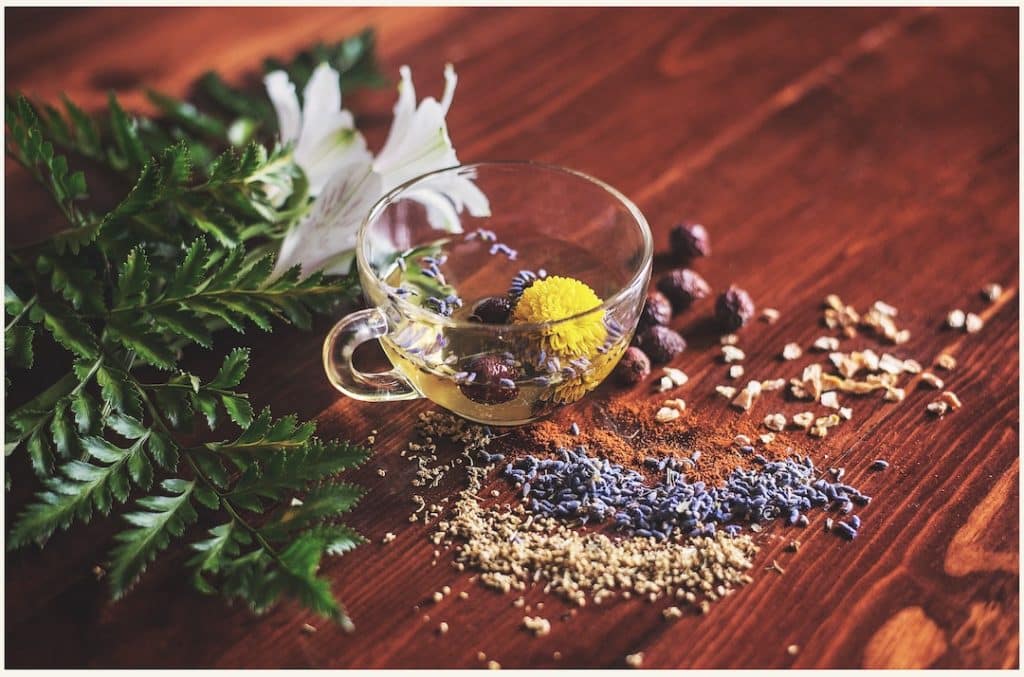
As a result, the doshas predispose us to tendencies and preferences. They show us certain food groups and lifestyle practices that work best for our body type.
In addition, improving the digestive fire (agni) and ridding the body of toxins (ama) are important.
In Ayurvedic terms, Vata is predominant during menopause and pitta and kapha play a role too.
An imbalanced vata is anxious, distracted and unsettled. While an imbalanced pitta is frustrated, angry and irritable and an imbalanced kapha is dull and lethargic.
If they’re out of balance you will notice mood swings, hot flushes, anxiety and many of the characteristic symptoms of menopause.
How does Ayurveda view menopause?
Ayurveda sees menopausal symptoms as an imbalance of the elements. If they’re out of balance you will notice the following imbalances:
- space and air (vata) – anxiousness, distracted and mood swings
- fire and water (pitta) – frusrated, angry, irritable, hot flushes
- water and earth (kapha) – dull, lethargic, heaviness
Ayurveda also recognises three stages of a woman: maiden, lady and crone.
Each of these stages spans 25 years.
Maiden
As a maiden you’re resilient. If you break a bone, it heals. If something serious happens in your life you learn, build and move on. It’s often associated with the kapha dosha.
Lady
During the time of the lady, you’re ‘doing’, achieving and accomplishing and pitta is often predominant which gives motivation and insights.
Crone
And the crone – or wise woman – is a time to slow down and oversee and when vata comes to the fore. Ayurveda sees it as a time of opportunity for self-care and reflection.
Vata characteristics:
Anxiety, mood swings, panic attacks, feeling cold, trouble sleeping, constipation, heart palpitations, aching joints, bloating.
Vata recommendations:
Create regularity in your life. Timely intake of meals, regular warm oil massages, warm food and drinks, yoga, walking, and meditation. Minimise cold salads, cold drinks, caffeine, alcohol, and refined sugar. Minimise doing too much in one day, reduce travelling.
What is the Ayurvedic approach to menopause?
According to the ancient wisdom of Ayurveda, natural menopause relief requires a few lifestyle changes. It is, however totally manageable by working with the body’s natural biorhythms.
However, as menopause is a time when the Vata dosha dominates the digestive fire (agni) can be affected. What’s more, heat in the body can lead to disrupted sleep and hot flushes and brittle bones.
Vata is a time to nourish, nurture and reflect.
6 Ayurvedic tips for natural menopause relief
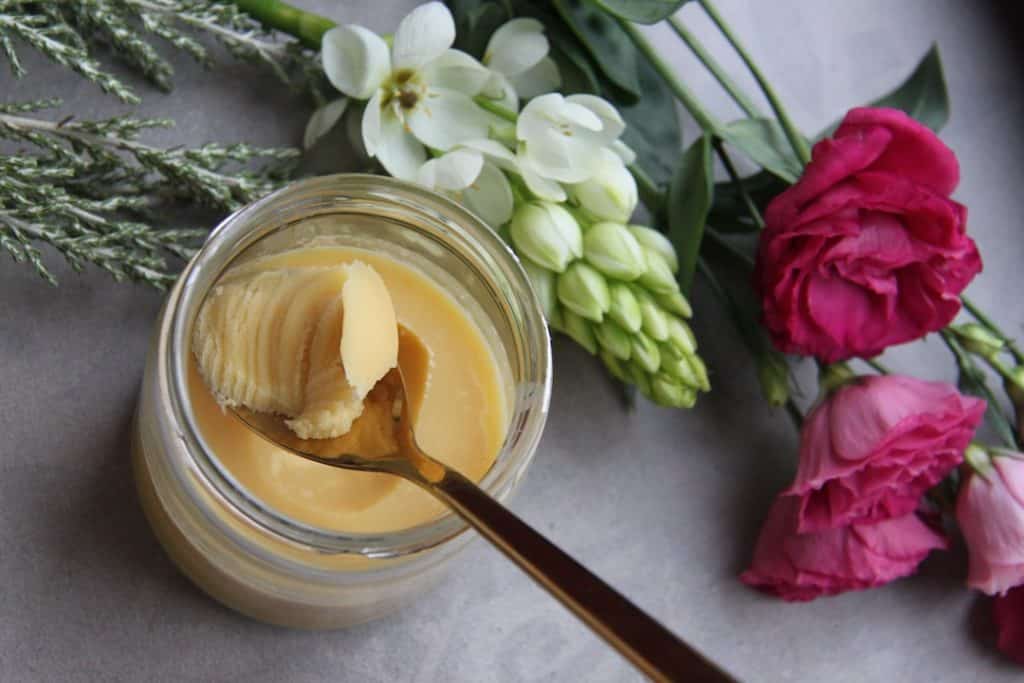
- Eat a vata-balancing diet filled with nourishing, warm foods such as root vegetables, soups, basmati rice and nut milks. Also, cook with oils like ghee, coconut oil (pitta) and sesame oil (vata). Add spices such as fennel, cumin and coriander to cool off the pitta. And, importantly, take the time to enjoy it – don’t eat and run.
- Have regular massages (including self-massage) with warm oils. Vata uses sesame oil and pitta coconut and sandalwood oils. The last two can be mixed. Kapha recommends dry brushing.
- Choose activities that work with the nervous system such as yoga and meditation. There are many studies showing yoga to be beneficial for menopause symptom relief. 1, 2. And Yoga Nidra is particularly helpful for anxiety.
- Regularity in your schedule is key so create regular sleep, food, work, exercise and personal routines.
- Ensure your body is well-hydrated for waste elimination and to keep your colon functioning well. Drink plenty of water and combine the herbs fennel, cumin and coriander (for pitta) with hot water to create a tea. Or try Ayurveda’s perfect partner – tulsi tea.
- Poop!
- According to Ayurveda pooping is vital and not just for waste elimination and hormone balance. Clearing your colon once or twice a day can help to keep your bones strong. In fact, irritable bowel syndrome has been linked with osteoporosis as these are both associated with vata imbalances.
Conclusion
The ancient art of Ayurveda can be powerful for women as we journey through menopause.
Ayurveda recognises that it’s important to prepare ourselves during our 30s to make an easier transition.
The menopause transition is a time when the vata dosha is predominant which calls for warming foods and herbs, plenty of massages, grounding in nature and movement such as yoga and meditation. It’s a time to not do, do, do and to share our wise women learnings.
With heartfelt thanks to Ayurvedic Lifestyle Practitioner and Yoga Master, Vandana Sivaranjini for sharing her wisdom with us.
Vandana runs The Yoga Therapy Clinic which you can find here.
Main photo by Karonlina Grabowska @pexelssl
